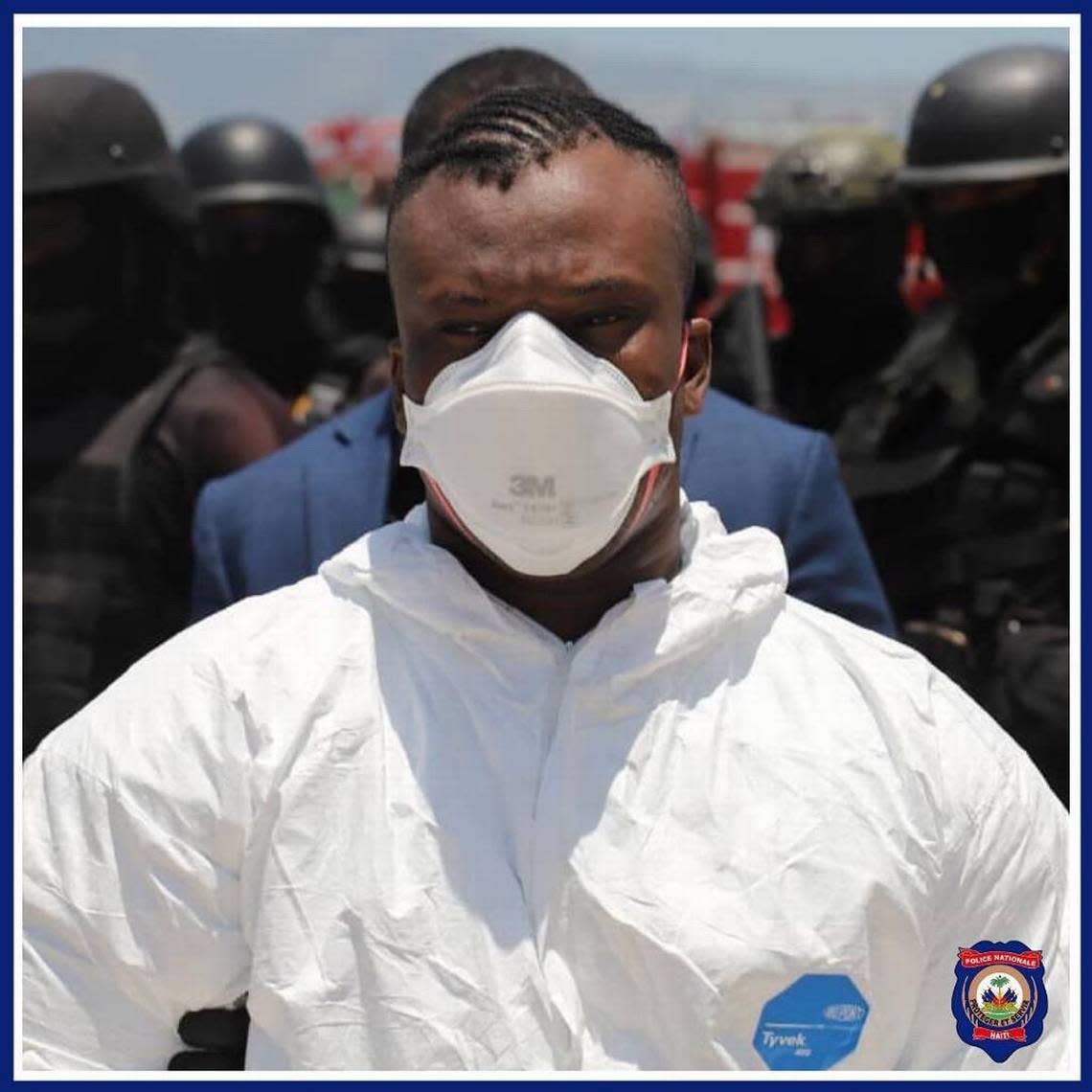Leader of Haiti’s infamous 400 Mawozo gang pleads guilty in midst of U.S. trial

The head of a notorious armed gang in Haiti behind the kidnapping of U.S. citizens, including 16 missionaries, pleaded guilty Wednesday to four dozen charges related to smuggling weapons to Haiti to fuel his group’s violence.
Germine “Yonyon” Joly, who initially pleaded not guilty to violating U.S. export laws, decided to change his plea late Tuesday while in the middle of his federal weapons smuggling conspiracy trial in a Washington, D.C. courtroom. He pleaded guilty to all 48 counts in his indictment and will be sentenced on May 15.
Federal prosecutors, who highlighted Joly’s role in Haiti’s kidnapping scourge and the coordination of the abduction of the missionaries, are asking for life imprisonment and penalties between $50,000 and $500,000.
Joly’s defense attorney Elita Amato asked the judge to sentence their client to a maximum of nine years. At the start of the trial, the defense painted Joly as a farm boy who had no affiliation with the gang, other than having relatives who were members. But the evidence against him mounted as prosecutors laid out their case over eight days with testimony from weapons experts, federal agents and a co-defendant.
Late Tuesday, just as the government was preparing to rest its case, Amato told U.S. District Judge John D. Bates that her client wanted to change his plea. Joly, 31, had originally waived his right to a jury trial, leaving his fate in the hands of the judge.
The guilty plea is a huge victory for the Biden administration, which has been under pressure to send a strong message about Haiti’s escalating gang violence and kidnappings. The FBI is searching for another seven gang members, belonging to five Haitian gangs, who are facing charges in the United States.
“Violent gangs have ravaged Haiti, and all too often Americans in Haiti have been targets of their violence,” said the U.S. Attorney for the District of Columbia, Matthew M. Graves.
While Joly referred to himself as the “King” of 400 Mawozo, co-defendant Eliande Tunis, a Pompano Beach resident who managed his weapons purchases, styled herself as his “wife” and the queen of the gang. On the eve of the trial, Tunis pleaded guilty to all 48 charges and, like Joly, faces life in prison.
Graves said the two were “intimately involved in arming the gang and laundering ransom proceeds the gang obtained from kidnapping Americans.”
“Preventing them from illegally shipping any more firearms or laundering the proceeds of kidnappings strikes a critical blow against the gang they once led,” he said in a statement.
Jeffrey B. Veltri, the Special Agent in Charge of the FBI Miami Field Office, said Joly’s and Tunis’ guilty pleas show that the FBI is dedicated to disrupting and dismantling armed groups in Haiti that undertake hostage-taking of U.S. citizens.
“This includes taking away their ability to wreak violence on the innocent using smuggled firearms,” Veltri said.
At trial, three U.S. citizens abducted by the gang testified about their ordeal and the ransoms requested. The prosecution presented evidence showing that 400 Mawozo commingled the ransom payments of Americans with the gangs’ funds, transferred the money via MoneyGram and Western Union from Haiti to the United States to Haiti to buy firearms, and had them smuggled to Haiti.
Joly was extradited from Haiti in May 2022 in connection with the missionaries’ kidnapping. However, he was not on trial for their hostage taking and none of the missionaries with Ohio-based Christian Aid Ministries took the stand. Joly has been been indicted separately for their kidnapping after claiming responsibility, U.S. authorities said in their statement.
Prosecutors built their case around more than 3,000 text and voice messages between him and three so-called straw buyers of weapons in South Florida. The co-defendants, whom U.S. investigators described as members of 400 Mawozo, were responsible for purchasing the weapons and smuggling get them into Haiti in barrels and containers under used clothing, shoes and Gatorade.
Despite being sentenced to life in prison in Haiti in 2018 for kidnapping, murder, arms trafficking and a host of other crimes, Joly controlled the gang from behind the prison’s walls. At least 24 rifles, handguns, and a shotgun were purchased at Florida gun shops by his co-defendants, the government said, who falsely stated that they were the “actual buyers” of the firearms, when they were in fact acting as straw purchasers for the gang leader.
Joly’s three co-defendants pleaded guilty before trial and one of them, Walder St. Louis, 31, spent two days on the stand testifying against Joly. Tunis pleaded guilty to all 48 charges on the eve of the trial. Jocelyn Dor, another co-defendant who acted as a straw gun purchaser for Joly and Tunis, previously pleaded guilty on October 30, 2023.
U.S. officials made the connection between the gangs and South Florida while trying to locate the kidnapped missionaries and secure their release.

